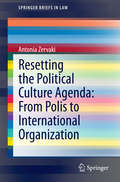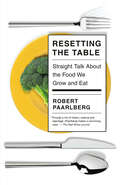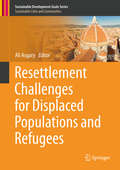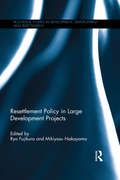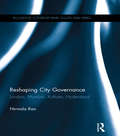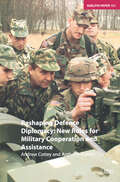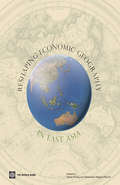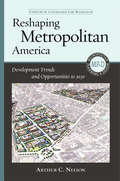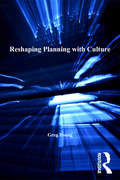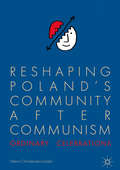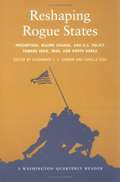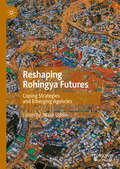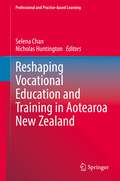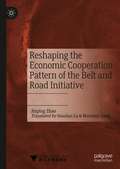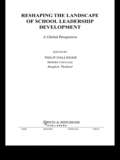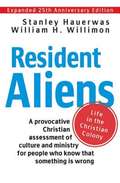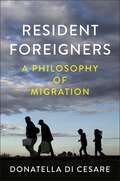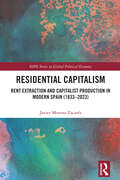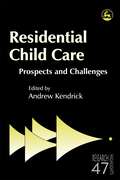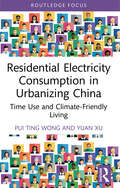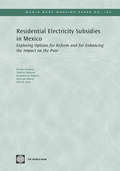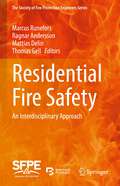- Table View
- List View
Resetting the Political Culture Agenda: From Polis to International Organization
by Antonia ZervakiThe analysis of the formation processes and manifestations of political culture in the domain of international relations and organization lacks a concrete theoretical and methodological framework. However, the main theoretical and methodological deficits seem to be related to the need for a clear-cut definition of the concept itself as well as to the integration of political science methodological tools into the international institutional law debate. This book considers the basic theoretical and methodological requirements for the use of political culture as a conceptual tool in the field of international organization research. Moreover, it applies the core theoretical and methodological assumptions to three case-studies, namely, the United Nations, the Council of Europe and the European Union, which are perceived as agents of distinct political cultures in the international system.
Resetting the Table: Straight Talk About the Food We Grow and Eat
by Robert PaarlbergA bold, science-based corrective to the groundswell of misinformation about food and how it's produced, examining in detail local and organic food, food companies, nutrition labeling, ethical treatment of animals, environmental impact, and every other aspect from farm to tableConsumers want to know more about their food--including the farm from which it came, the chemicals used in its production, its nutritional value, how the animals were treated, and the costs to the environment. They are being told that buying organic foods, unprocessed and sourced from small local farms, is the most healthful and sustainable option. Now, Robert Paarlberg reviews the evidence and finds abundant reason to disagree. He delineates the ways in which global food markets have in fact improved our diet, and how "industrial" farming has recently turned green, thanks to GPS-guided precision methods that cut energy use and chemical pollution. He makes clear that America's serious obesity crisis does not come from farms, or from food deserts, but instead from "food swamps" created by food companies, retailers, and restaurant chains. And he explains how, though animal welfare is lagging behind, progress can be made through continued advocacy, more progressive regulations, and perhaps plant-based imitation meat. He finds solutions that can make sense for farmers and consumers alike and provides a road map through the rapidly changing worlds of food and farming, laying out a practical path to bring the two together.
Resettlement Challenges for Displaced Populations and Refugees (Sustainable Development Goals Series)
by Ali AsgaryThe main focus of this book is to help better understand the multidimensionality and complexity of population displacement and the role that reconstruction and recovery knowledge and practice play in this regard. According to the UN Refugee Agency (UNHCR), the total number of people forcibly displaced due to wars and conflicts, disasters, and climate change worldwide, exceeded 66 million in 2016. Many of these displaced populations may never be able to go back and rebuild their houses, communities, and businesses.This text brings together recovery and reconstruction professionals, researchers, and policy makers to examine how displaced populations can rebuild their lives in new locations and recover from disasters that have impacted their livelihoods, and communities. This book provides readers with an understanding of how disaster recovery and reconstruction knowledge and practice can contribute to the recovery and reconstruction of displaced and refugee populations. This book will appeal to students, researchers, and professionals working in the field.
Resettlement Policy in Large Development Projects (Routledge Studies in Development, Displacement and Resettlement)
by Ryo Fujikura Mikiyasu NakayamaHydropower generation by construction of large dams attracts considerable attention as a feasible renewable energy source to meet the power demand in Asian cities. However, large development projects cause involuntary resettlement. Of the world’s forty to eighty million resettlers, many resettlers have been unable to rebuild their livelihood after relocation and have become impoverished. This book uniquely explores the long-term impacts of displacement and resettlement. It shows that long-term post-project evaluation is necessary to assess the rehabilitation and livelihood reconstruction of resettlers after relocation. It focuses on large dam projects in a number of Asian countries, including Indonesia, Japan, Laos, Turkey, Sri Lanka and Vietnam, which are often ignored in Displacement studies in favour of China or India. Drawing on a wealth of empirical data over ten years, it presents crucial factors for successful resettlement by analysing lessons learned. The range of countries allow for a diverse and complex set of factors and outcomes to be analysed. Many of the factors for successful resettlement recur despite the cases being different in implementation period and location. The book presents highly original findings gathered by local researchers in the field directly talking to resettlers who were relocated more than a decade ago. This original book is a unique resource for researchers and postgraduate students of development studies, environment, geography, sociology and anthropology. It also makes policy recommendations for future resettlement programs that are of great value to development policy makers, planners, water resources engineers and civil society protest groups.
Reshaping Toronto's Waterfront
by Jennefer Laidley Gene DesforLarge-scale development is once again putting Toronto's waterfront at the leading edge of change. As in other cities around the world, policymakers, planners, and developers are envisioning the waterfront as a space of promise and a prime location for massive investments. Currently, the waterfront is being marketed as a crucial territorial wedge for economic ascendancy in globally competitive urban areas.Reshaping Toronto's Waterfront analyses how and why 'problem spaces' on the waterfront have become 'opportunity spaces' during the past hundred and fifty years. Contributors with diverse areas of expertise illuminate processes of development and provide fresh analyses of the intermingling of nature and society as they appear in both physical forms and institutional arrangements, which define and produce change. Reshaping Toronto's Waterfront is a fundamental resource for understanding the waterfront as a dynamic space that is neither fully tamed nor wholly uncontrolled.
Reshaping City Governance: London, Mumbai, Kolkata, Hyderabad (Routledge Contemporary South Asia Series)
by Nirmala RaoIndia’s cities are in the midst of an unprecedented urban expansion. While India is acknowledged as a rising power, poised to emerge into the front rank of global economies, the pace and scale of its urbanisation calls for more effective metropolitan management if that growth is not to be constrained by gathering urban crisis. This book addresses some key issues of governance and management for India’s principal urban areas of Mumbai, Kolkata and Hyderabad. As three of the greatest Indian cities, they have evolved in recent decades into large metropolitan regions with complex, overlapping and often haphazard governance arrangements. All three cities exemplify the challenges of urbanisation and serve here as case studies to explore the five dimensions of urban governance in terms of devolution, planning, structures of delivery, urban leadership and civic participation. London, with its recent establishment of a directly elected Mayor, provides a reference point for this analysis, and signifies the extent to which urban leadership has moved to the top of the urban governance agenda. In arguing the case for reform of metropolitan governance, the book demonstrates that it would be too simplistic to imagine that London’s institutional structure can be readily transposed on to the very different political and cultural fabric of India’s urban life. Confronting India’s urban crisis with a comparative analysis that identifies the limits of policy transfer, the book will be particularly valuable to students and scholars of Politics, Governance, and Urban studies.
Reshaping Defence Diplomacy: New Roles for Military Cooperation and Assistance (Adelphi series)
by Andrew CotteyAnalyses changing patterns of international military cooperation and assistance and shows that Western defence diplomacy is increasingly being directed towards new goals. The new defence diplomacy runs alongside the old and there are tensions between the two, in particular between the new goal of promoting democracy and the old imperative of supporting authoritarian allies.
Reshaping Economic Geography in East Asia
by Yukon Huang Alessandro Magnoli BocchiThis companion volume to the 'World Development Report 2009' comprises twenty papers authored by noted Asian scholars. These studies highlight how, throughout East Asia, spatial considerations have influenced Government policies at the national, regional, and local levels. Key themes include how countries have dealt with: (1) agglomeration economies, urbanization, and regional disparities; (2) improving connectivity with infrastructure investments; and (3) eliminating barriers across and within countries to favor the movement of labor, goods and services. Achievements vary widely across countries: while some succeeded in enhancing competitiveness and improving social outcomes, others are experiencing increasing inequalities and failures to spur growth in disadvantaged areas. The book highlights many examples of how the new economic geography is reshaping development objectives: from initiatives to foster growth via enhanced agglomeration and improved local connectivity to the world economy, to special decentralization programs that channel resources to lagging regions. This volume will be of great interest to readers working in the areas of economic policy, poverty reduction and urban-rural development strategies, and transport-led infrastructure policy.
Reshaping Metropolitan America
by Arhur C. NelsonNearly half the buildings that will be standing in 2030 do not exist today. That means we have a tremendous opportunity to reinvent our urban areas, making them more sustainable and livable for future generations. But for this vision to become reality, the planning community needs reliable data about emerging development trends. Arthur C. Nelson delivers that resource in Reshaping Metropolitan America, providing statistics about changes in population, jobs, housing, nonresidential space, and other key factors. Most importantly, he shows the benefits of reshaping America in ways that meet emerging market demands, and then outlines a policy agenda to do so. Reshaping Metropolitan America does not simply make predictions; it shows that Americans want better communities, what the benefits are, and how to get there.
Reshaping Metropolitan America: Development Trends and Opportunities to 2030
by Arthur C. Nelson Earl BlumenauerNearly half the buildings that will be standing in 2030 do not exist today. That means we have a tremendous opportunity to reinvent our urban areas, making them more sustainable and livable for future generations. But for this vision to become reality, the planning community needs reliable data about emerging trends and smart projections about how they will play out. Arthur C. Nelson delivers that resource in Reshaping Metropolitan America. This unprecedented reference provides statistics about changes in population, jobs, housing, nonresidential space, and other key factors that are shaping the built environment, but its value goes beyond facts and figures. Nelson expertly analyzes contemporary development trends and identifies shifts that will affect metropolitan areas in the coming years. He shows how redevelopment can meet new and emerging market demands by creating more compact, walkable, and enjoyable communities. Most importantly, Nelson outlines a policy agenda for reshaping America that meets the new market demand for sustainable places.
Reshaping Planning with Culture
by Greg YoungPlanning is described as being increasingly sidelined by the impacts of neo-liberal restructuring. At the same time, 'culture' is nowadays seen as the world's key intellectual resource possessing new creative weight in sociological, economic and environmental terms. This book argues that, in the light of this cultural turn, there is the opportunity to re-position planning and proposes an original, practical and robust system of 'culturisation'. Culturisation is defined as the ethical, critical and reflexive integration of culture into planning and potentially other areas such as public administration, corporate strategy and development thinking. Cultural theory, planning theory, global governance policy and recent, innovative culturised practices are all explored to this end. The new theoretical and practical approach put forward shows how deeper, richer and more relevant ideas about culture can be utilized in planning, and is illustrated with international examples and two major case studies detailing new vistas for a refurbished planning.
Reshaping Poland’s Community after Communism: Ordinary Celebrations
by Helena Chmielewska-SzlajferHarnessing a cultural sociological approach to explore transformations in key social spheres in post-1989 Poland, Chmielewska-Szlajfer illuminates shifts in religiosity, sympathy towards others, and civic activity in post-Communist Poland in the light of Western influence over elements of Polish life.Reshaping Poland’s Community after Communism focuses on three major cases, largely ignored in Polish scholarship: (1) a hugely popular, faux-baroque Catholic shrine, which illustrates new strategies adopted by the Polish Catholic Church to attract believers; (2) Woodstock Station, a widely known free charity music festival, demonstrating new practices of sympathy towards strangers; and (3) the emergence of national internet pro-voting campaigns and small-town watchdog websites, which uncover changes in practical uses of civic engagement. In exploring grass-roots, everyday negotiations of religiosity, charity, and civic engagement in contemporary Poland, Chmielewska-Szlajfer demonstrates how a country’s cultural changes can suggest wider, dramatic democratic transformation.
Reshaping Rogue States: Preemption, Regime Change, and U.S. Policy Toward Iran, Iraq, and North Korea
by Alexander T. J. Lennon Camille EissIn January 2002, President George W. Bush declared Iran, Iraq, and North Korea constituents of an "axis of evil."
Reshaping Rohingya Futures: Coping Strategies and Emerging Agencies
by Nasir UddinThis edited book presents many hitherto unaddressed aspects of post-genocide Rohingya lives in refugee camps in Bangladesh. Amid an everyday struggle for daily essentials, violent tensions within and outside the camps, growing anti-Rohingya sentiment in the host community as well as the decreasing international support during the repatriation process, Rohingya adolescents and youths show strategies of coping and agency to alter their present and reshape their future. An upsurge in digital literacy, mounting transnational connectivity, growing engagement with diaspora Rohingya activism and a cumulative presence in social media for sentiment mobilisation on a local and global scale has motivated them to bring about change for themselves and their community within the camps. This book accommodates such fresh and high-quality research on the Rohingya refugees living in the borderland of Bangladesh and Myanmar, conducted by acclaimed academics, professional researchers, and committed activists from across the world, for researchers and students of migration, sociology of race and ethnicity, anthropology, diaspora studies, peace and conflict studies and social work.
Reshaping Vocational Education and Training in Aotearoa New Zealand (Professional and Practice-based Learning #34)
by Selena Chan Nicholas HuntingtonThis book contributes extensively to a better understanding of how vocational education and training (VET) and practice-based learning and teaching is developed and designed. It presents examples of vocational education as an ongoing dialogue, continually refreshed through engagement between educators and learners, Māori, employers, industry, and others. It demonstrates how the needs of learners can be met through relevant models of delivery, and how organisations and individuals work towards equity of access and parity of outcomes for all.It details the origins, purposes and evolution of vocational organisations, initiatives supporting Māori and Pasifika success and women in traditionally male-dominated occupations, the roles, provisioning and impact of foundation VET across different contexts, innovations through Certificate, Diploma and Degree programmes of learning, the contribution of new technologies to learning approaches, and the efficacy of education and professional development for VET teachers.This collection of chapters illustrates how Aotearoa New Zealand’s VET system is responding to challenging and changing environments through new frameworks of practice, approaches, and models of delivery. As an overview of a system in change, it is of interest to VET educators, system managers, and policy makers.
Reshaping the Economic Cooperation Pattern of the Belt and Road Initiative
by Jinping ZhaoThis book focuses on the important theme of economic cooperation along the Belt and Road. Starting from an analysis of current situation, the book defines the cooperation direction and specific tasks for extensive fields and goes on to provide a systematic analysis of the cooperation mechanism, trade, investment, infrastructure construction, energy and industry park cooperation along the Belt and Road. Using in-depth research on the situation, opportunities and challenges in pushing forward the economic cooperation along the Belt and Road, the author puts forward policy suggestions on the way forward.
Reshaping the Landscape of School Leadership Development: A Global Perspective (Contexts Of Learning Ser.)
by Philip HallingerReshaping the Landscape of School Leadership Development: A Global Perspective traces developments in this arena as they evolved since 1980. The book is comprised of chapters authored by the leading scholars in the fields of educational leadership and school leadership development from the United States, Canada, Europe, Asia, and Australia. The vol
Resident Aliens: Life in the Christian Colony (Expanded 25th Anniversary Edition)
by William H. Willimon Stanley HauerwasOnly when the Church enacts its scandalous Jesus-centered tradition, will it truly be the Body of Christ and transform the world. Twenty-five years after its first publishing, Resident Aliens remains a prophetic vision of how the Church can regain its vitality, battle its malaise, reclaim its capacity to nourish souls, and stand firmly against the illusions, pretensions, and eroding values of today's world.Resident Aliens discusses the nature of the church and its relationship to surrounding culture. It argues that churches should focus on developing Christian life and community rather than attempting to reform secular culture. Hauerwas and Willimon reject the idea that America is a Christian nation, instead Christians should see themselves as "residents aliens" in a foreign land. Stanley Hauerwas and William H. Willimon maintain that, instead of attempting to transform government, the role of Christians is to live lives which model the love of Christ. Rather than trying to convince others to change their ethics, Christians should model a new set of ethics which are grounded in the life, death, and resurrection of Christ.
Resident Foreigners: A Philosophy of Migration
by Donatella Di CesareFrom the shores of Europe to the Mexican-US border, mass migration is one of the most pressing issues we face today. Yet at the same time, calls to defend national sovereignty are becoming ever more vitriolic, with those fleeing war, persecution, and famine vilified as a threat to our security as well as our social and economic order. In this book, written amidst the dark resurgence of appeals to defend ‘blood and soil’, Donatella Di Cesare challenges the idea of the exclusionary state, arguing that migration is a fundamental human right. She develops an original philosophy of migration that places the migrants themselves, rather than states and their borders, at the centre. Through an analysis of three historic cities, Athens, Rome and Jerusalem, Di Cesare shows how we should conceive of migrants not as an other but rather as resident foreigners. This means recognising that citizenship cannot be based on any supposed connection to the land or an exclusive claim to ownership that would deny the rights of those who arrive as migrants. Instead, citizenship must be disconnected from the possession of territory altogether and founded on the principle of cohabitation – and on the ultimate reality that we are all temporary guests and tenants of the earth. Di Cesare’s argument for a new ethics of hospitality will be of great interest to all those concerned with the challenges posed by migration and with the increasingly hostile attitudes towards migrants, as well as students and scholars of philosophy and political theory.
Residential Capitalism: Rent Extraction and Capitalist Production in Modern Spain (1833–2023) (ISSN)
by Javier Moreno ZacarésOver the last decade, Spain has become an emblem of the contradictory relationship between capitalism and housing. During the house-price boom of the 2000s, Spain built homes on an unprecedented scale, with output levels that overshadowed those of every major European economy. Nevertheless, when the fortunes of real estate markets turned, a wave of repossessions ensued, and a massive number of households were thrown out into the street as a sizeable portion of the housing stock was lying vacant. In turn, the implosion of Spanish residential capitalism triggered an intense wave of unrest that has come to shape a decade of political turmoil.This book uses the Spanish case to bring to light, and theorise, the workings of residential capitalism. The author traces the evolution of residential provision from the nineteenth century to the present, situating the transformation of the housing market in a context of ongoing social change and conflict. The book shows how the present needs to be understood by looking at the historical process through which residential provision became subsumed under the logic of capitalist accumulation but also at a long genealogy of struggles around urbanisation and housing, the outcomes of which remain crystallised in Spain’s urban institutions. The author reveals how both residential capitalist development and urban social conflict have constituted each another, casting light on the historical relationship between housing crises, urban unrest, and the evolution of real estate markets. The book develops a historicist framework to understand residential capitalism, an important contribution for an age in which real estate markets have come to determine the rhythms of global capital.Addressing key issues and debates in the field, including the financialisation of housing, the politics of scale and urban entrepreneurialism, the political economy of the Eurozone, and the history of capitalist development, this book will be of great interest to students and scholars of political economy, as well as those engaged in crossover fields such as housing studies, urban geography, or financial geography.
Residential Child Care: Prospects and Challenges
by Claire Cameron Christine Barter Brigid Daniel Jane Scott Harriet Ward Andrew Kendrick Ruth Emond Laura Steckley Malcolm Hill Jo Dixon Janet Boddy Lynne Hunter Kirsten Stalker Aileen Barclay Judy Furnivall Irene Stevens Joe Francis Roger Bullock Van Beinum Teresa O'NeillResidential Child Care draws on the latest research to offer guidance for developing best practice, policy and improved outcomes for children and young people. Contributors examine important aspects of residential care work, and address the concerns about the poor outcomes for young people leaving care and the role of residential child care as a positive choice within the range of care services. Key issues addressed include promoting well-being and development for young people; tackling potential discrimination in residential policy and practice; responding to areas of discord in residential child care; and underpinning themes relating to residential child care, such as staff development and support. This book will provide essential reading for policy makers, managers and practitioners in residential care and the social services, and students in the field.
Residential Electricity Consumption in Urbanizing China: Time Use and Climate-Friendly Living (Routledge Focus on Energy Studies)
by Yuan Xu Pui Ting WongThis book forges a link between residential CO2 emissions and time use, focussing on China as a key case study. To provide a better understanding of the energy implications of the lifestyle differences between urban and rural China, Pui Ting Wong and Yuan Xu utilise time-use methodology as an alternative way to explore the links between individual lifestyle and residential electricity consumption. They begin by examining how Chinese citizens divide their time between daily activities, highlighting patterns around indicators including age, gender, education, and economic status. They go on to quantify CO2 intensities of these time-use activities. Through this linkage, this book presents an alternative strategy for climate-friendly living, highlighting the ways in which urban planning can be deployed to help individuals adapt their time-use patterns for CO2 mitigation. Providing a novel contribution to the growing literature on residential electricity consumption, Residential Electricity Consumption in Urbanizing China will be of great interest to scholars of climate policy, energy studies, time use, and urban planning.
Residential Electricity Subsidies in Mexico
by Todd M. Johnson Kristin Komives John R. Scott Jonathan D. Halpern Jose Luis AburtoLarge and growing subsidies to residential consumers in Mexico have become a major policy concern. This report explains the growth of subsidies, the current distribution of subsidies across income classes, and uses utility and household survey data to simulate how alternative subsidy mechanisms could improve distributional and fiscal performance. The goal is to help inform discussion in Mexico about how to reduce subsidies and redirect them toward the poor. The findings also offer lessons for other countries that are planning tariff reforms in their electricity sectors.
Residential Fire Safety: An Interdisciplinary Approach (The Society of Fire Protection Engineers Series)
by Marcus Runefors Ragnar Andersson Mattias Delin Thomas GellThis book provides a comprehensive overview of deaths and injuries from residential fires as well as the most up to date information on evidence-based approaches to reduce this problem. The volume serves as a guide for professionals working in the field of fire prevention and as a textbook for instruction in universities and fire service schools. The authors’ interdisciplinary approach, where public health methodology is combined with fire protection engineering, medicine, and policy science, is quite distinctive outside of the technical literature devoted to larger scale fire events. Traditional textbooks on fire protection tend to describe the problem as purely technical, whereas in essence it is a problem of human vulnerability. In this book, readers will find lucid and rigorous descriptions of various risk groups and effective preventive measures that are effective, both in general and with respect to the different risk groups. They will also find work processes to facilitate risk reduction. Summarizing state-of-the-art knowledge and giving guidance for the future, both in terms of preventive efforts and ongoing research, Residential Fire Safety: An Interdisciplinary Approach, is ideal for students, educators, and practitioners of residential fire protection.
Residential Satisfaction and Housing Policy Evolution (Routledge Studies in International Real Estate)
by Clinton Aigbavboa Wellington ThwalaThis book explores residential satisfaction and housing policy trends in developing nations by using subsidised low-income housing examples in South Africa, Ghana and Nigeria as case studies. While there has been much documentation on the formation of residential satisfaction and the evolution of housing policy in developed nations, relatively little has been written about these topics in developing nations. This book provides readers with two major practical insights: The first is focused on the theoretical underpinning of residential satisfaction and the formation of residential satisfaction in subsidised low-income housing through the development of a conceptual framework, while the second is focused on housing policy evolution and its trends in South Africa. In this section of the book, comparative overviews of public housing in two West African countries are provided with an emphasis on the philosophical basis for its development in these countries. The central aim of the book is to provide readers with ideas on residential satisfaction formation and housing policy trends in South Africa.
